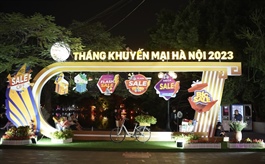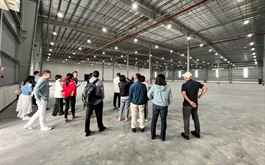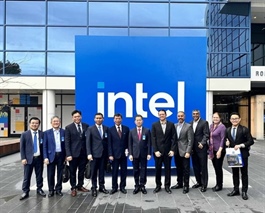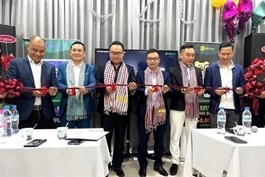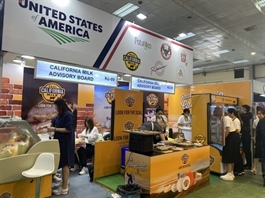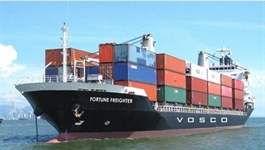Digital transformation to make breakthroughs in Hanoi agriculture: experts
Digital transformation to make breakthroughs in Hanoi agriculture: experts
Digital transformation in agriculture is actively embraced by many localities, companies, and individuals to improve productivity, increase product value, and protect the environment.
Representatives from localities and enterprises that have successfully undertaken digital transformation initiatives shared their activities with Hanoi Ngay Nay.
Bui Cong Than, Vice Chairman of Thuong Tin District People's Committee: Opportunities to leave the small-scale production mindset
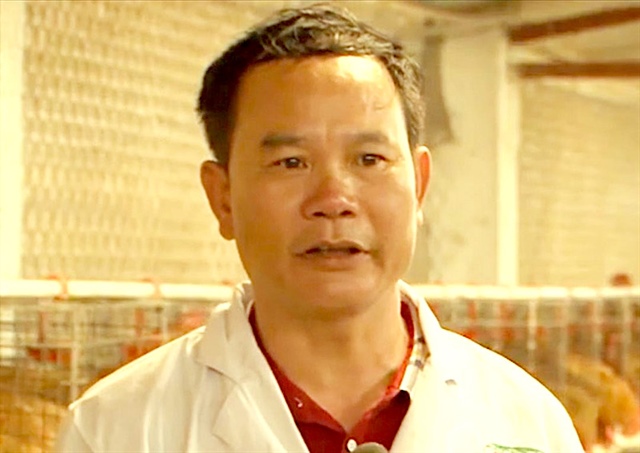
Bui Cong Than, Vice Chairman of the People's Committee of Thuong Tin District. Photo: The Hanoi Times |
Recently, the Thuong Tin District Party Committee and People's Committee have carried out many activities to promote scientific and technological development and innovation and accelerate rapid and sustainable economic growth.
Scientific and technological achievements have been applied to various production sectors and people's lives, forming concentrated production areas and large high-tech agricultural fields with high productivity, quality, and competitive products.
The digital transformation of production creates an opportunity to move from inefficient and fragmented small-scale production to advanced agriculture.
As a result, the district has developed 1,745 hectares of high-quality rice cultivation areas, 545 hectares of safe vegetable farming areas, 130 hectares of high-quality fruit tree growing areas, and 146.7 hectares of flower and ornamental plant cultivation areas.
The district has also developed 15 high-tech agricultural models and 14 livestock supply chains, with 166 products that meet the requirements of the One Commune One Product (OCOP) program, helping to raise the average per capita income to VND66-68 million (US$2,731-2,813) per year.
Currently, some enterprises have supported farmers in adopting digital transformation solutions, high-tech agricultural applications (greenhouses, lighting systems, traceability, and IoT), and various high-value agricultural models in the district.
Nguyen Manh Hong, Director of Duc Phat High-Tech Agricultural Cooperative (Thanh Tri District): Applying digital transformation for quality control and value addition in production
Since 2016, with the support of the Thanh Tri District People's Committee, Duc Phat Cooperative has been cultivating hydroponic vegetables using Israeli technology in an area of 2,600 square meters.
We have applied innovative technology and automation in production, such as an automatic sun-cutting system, a counterflow air heat exchanger, an automatic irrigation system, and nutrient recovery systems.
By applying new technologies, high yields have been achieved for various vegetables and fruits grown in the greenhouse model, including several types of cabbage, water spinach, tomatoes, and cucumbers.
In particular, vegetables such as kale, which were previously difficult to grow in the summer, can now be cultivated thanks to the application of technology.
As the plants grow, I check and monitor their development through a management software system on my cell phone and make adjustments accordingly.
As a result, hydroponic vegetable production in greenhouses has fewer pest and disease problems than traditional farming methods.
Currently, the cooperative supplies vegetables to canteens and schools in the area, generating an annual income of VND800 million ($33,072) to VND1 billion ($41,380).
Hoang Manh Ngoc, Director of Ngoc Mung Giong Gia Cam Joint Stock Company (Dong Anh District): Ensure good quality of breeding animals

Hoang Manh Ngoc, Director of Ngoc Mung Giong Gia Cam JSC. |
The company currently raises 35,000 parent poultry. The farm owner uses information technology to control many tasks via smartphones.
In addition, the automated feed production line operated by workers has reduced labor time and increased production efficiency.
I have various software applications on my phone with adjustable settings to manage and operate the process remotely.
Technology also helps reduce input costs and labor and detect disease abnormalities in the chicken flock in a timely manner for appropriate treatment.
In addition, the company's farm system is built using closed-loop breeding technology with electric temperature control.
In particular, I have carefully and scientifically invested in the waste treatment system to prevent environmental pollution and ensure clean farm facilities. The company has provided a large quantity of high-quality chicken breeds to the market through the application of technology in management.








